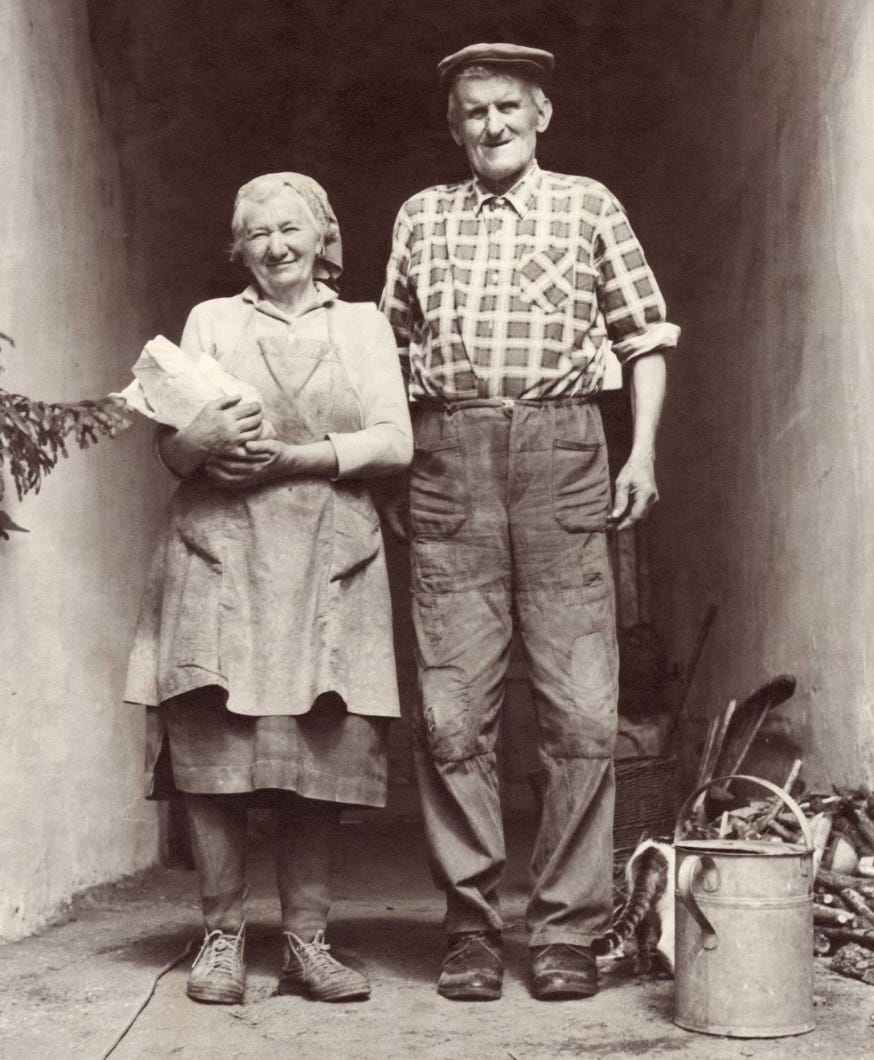We learn language from our family and those around us from the time we’re born. The words and phrases used by our immediate family, grandparents, aunts, and uncles are familiar and comfortable. They may be descriptive terms, names for objects or activities, or cuss words.
These words stick with as we grow up. Your family words may be different than mine, depending on geographic location, country of origin, family history, and many other factors.
We might keep this language alive by using it as adults with our own families, but even when we choose not to, we always remember. Hearing or reading something one of my grandparents or great aunt used to say can bring back a slew of memories.
I’m certainly not a linguist, but I do have a great interest in words from the past and how they were used. I think about how many of these words may be lost, if not in general, then at least to the descendent family members. Once enough time goes by, there may be no one left in the family who heard it in active use, so the context and pronunciation may not be clear. There’s nothing like hearing it from a seasoned elder!
Below, I’ve listed a few of the ones used by my family. I’ve included basic info about where this part of the family had lived/lived. For some, I’ve made an attempt to give a phonetic description. Say them with a bit of a twang!
Lawsy Massy: This is a form of Lord Have Mercy. My grandmother said this a lot as did most of the other members of her family. It was usually uttered with a deep sigh and grunt of exasperation. Both of my grandmother’s parents came from Kentucky and moved to southern Indiana where she was born.
Criminetly: CRY-mih-NET-ly. Another of my grandmother’s oft-used oaths. The worse the offense, the longer the word is drawn out and more vehemence is applied. Experienced users can drag this word out to at least 7 seconds, sometimes doubling the amount of syllables. This is most often believed to be a toned-down version of saying Christ, used when angry or frustrated without cursing full-force.
Directly: DRECK-ly. Meaning shortly or before long, as in, “We’ll be leaving dreckly.” We took that as ‘be sure you’re ready because we’ll leave you behind.’ My grandfather nearly managed to say this in one syllable; the ‘ly’ is barely there. His father’s family was also from mid-state and northern Kentucky and wound up in southern Indiana.
Dad-blamed: A favorite of that same family. A more acceptable form of ‘damned.’
Idgit: ID-jit. Idiot, fool, nincompoop. I heard this mostly from my Dad’s family who had a Scots-Irish ancestry and lived in a town in southern Illinois with a significant Scots-Irish population in the early days. I can remember my great aunt saying to my grandfather, her younger brother, “Don’t be an idgit!” This was clearly a common barb between them since it always made him laugh.
Waddin’: WAD-n. I used this in my previous blog post about my great-grandmother Carrie. It was her daughter, my grandmother, who used it a lot. To scare the waddin’ out of someone was to give them a sudden fright. To pull the waddin’ out of you was to take the wind out of your sails by punishment.
The mother of one of my best friends as a kid grew up in eastern Kentucky. She used a lot of compound nouns. She didn’t say school, she always said schoolhouse. Rather than “do the dusting,” she said, “get the dusting-rag.” A lot of the terms we use are similar, like dishcloth, dishtowel, or clothes hamper. My friend’s mom just had a larger repertoire than I was accustomed to hearing. She also required the dusting-rag to be used every day. Darn-tootin’!
The history of family words adds another dimension to our family stories and they deserve to be preserved. Do you recognize any of these? What are some of the words you heard in your family?





